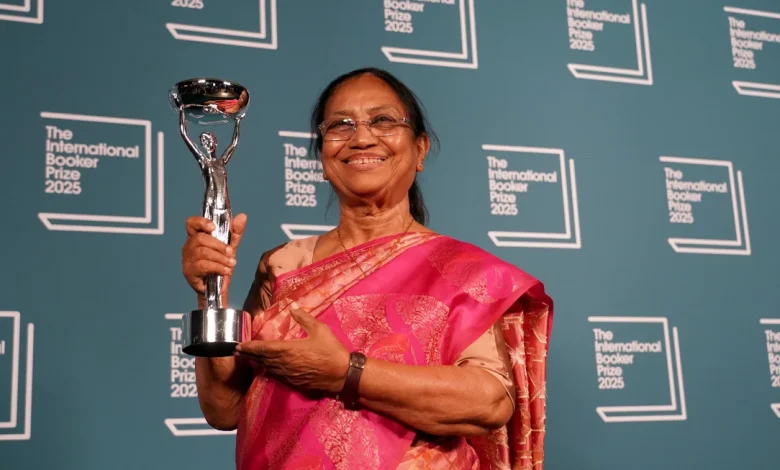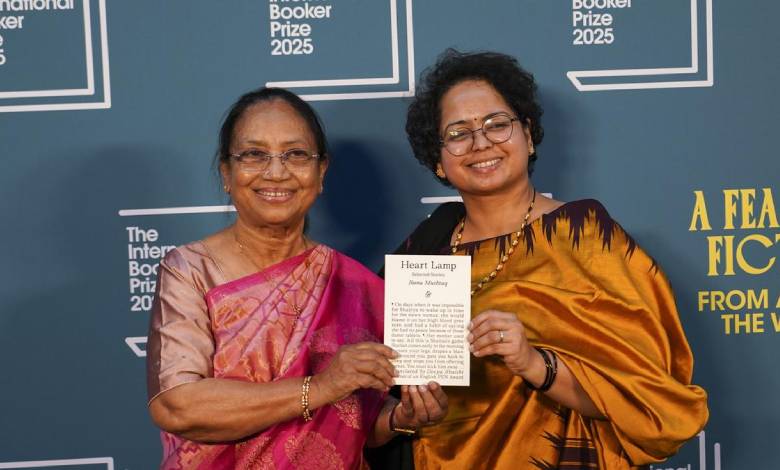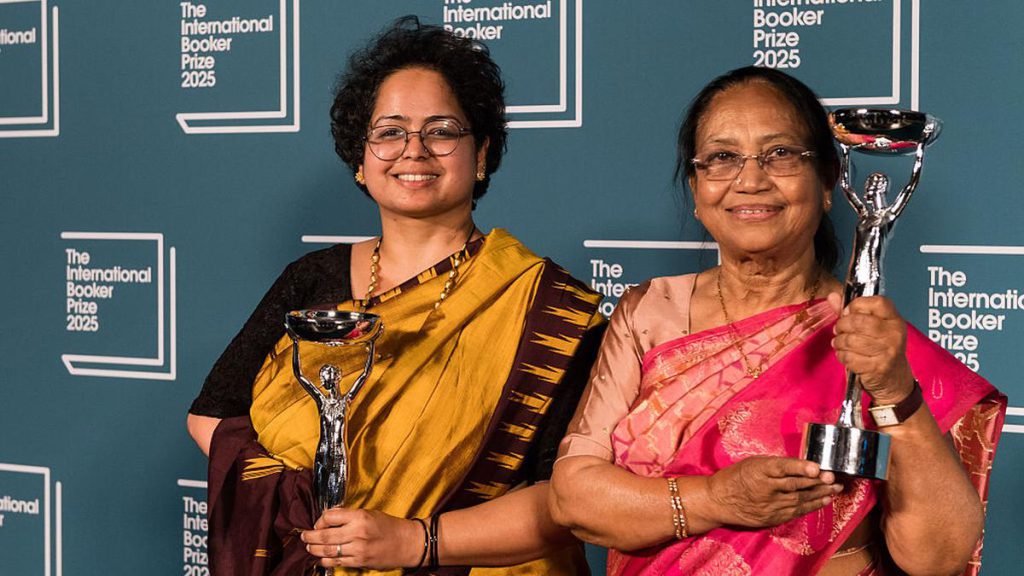
(By Our Correspondent)
London: Banu Mushtaq, a Kannada writer and activist, made history by becoming the first Indian author in the language to win the prestigious International Booker Prize. Her short story collection ‘Heart Lamp’, translated by Deepa Bhasthi, earned the £50,000 award, bringing global recognition to her decades-long literary career.
Who is Banu Mushtaq?
Born in Hassan, Karnataka, in 1948, Mushtaq is a multifaceted figure journalist, lawyer, politician, and relentless advocate for women’s rights and social justice. She began writing in the 1970s, with her first story published in Prajamatha (1974). Her journalistic stint at Lankesh Patrike (1981-90) under editor P. Lankesh shaped her bold, reformist voice.


Literary and Activist Legacy
A key figure in Kannada’s Bandaya (protest) movement, her works challenge caste oppression and gender inequality. With over 60 stories across six collections, her narratives blend Kannada, Urdu, and Dakhni influences. Notable works include Hejje Moodida Haadi (1990) and Haseena Mattu Itara Kathegalu (2015). Black Cobra, from Heart Lamp, inspired Girish Kasaravalli’s award-winning film Hasina.
Defying Backlash
Despite threats including a knife attack for her progressive portrayals of Muslim women, Mushtaq remains unyielding. Earlier accolades include the Karnataka Sahitya Academy Award (1999) and the English PEN Translation Prize (2024) for Haseena and Other Stories, also translated by Bhasthi.
The Booker win cements her place as a trailblazer in Indian literature.




